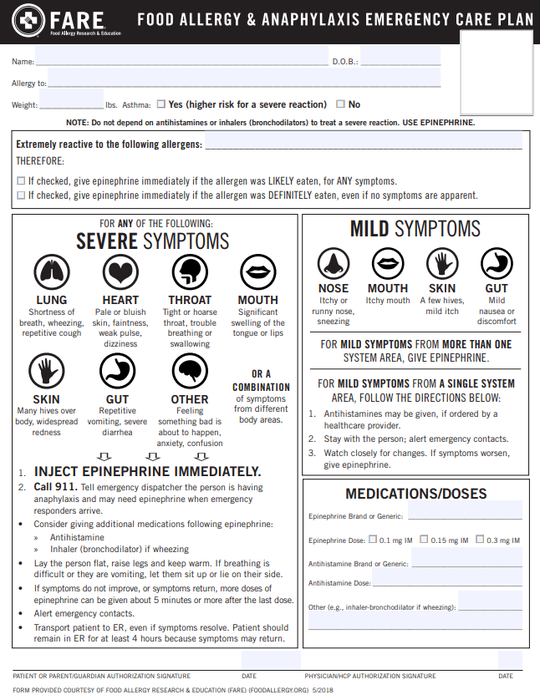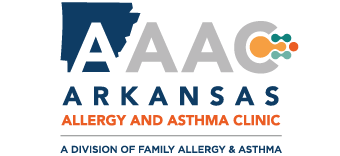A Back-to-School Allergy Guide for Parents

As summer draws to a close and the excitement of a new school year begins, parents of children with allergies face unique challenges. Returning to school means exposure to various potential allergens, from classroom dust and mold to shared snacks that might trigger food allergies. This comprehensive guide helps parents navigate these challenges to ensure a safe and healthy start to the academic year.
Understanding Back-to-School Allergies
Allergies can significantly impact a child’s comfort, health and ability to learn effectively. Understanding the sources of school-related allergens is the first step in managing them:
- Pollen: Affects children during outdoor play and sports.
- Dust Mites: These are found in classrooms, particularly on carpets, old books and fabric-covered furniture.
- Mold: Thrives in damp areas such as bathrooms and basements, often found in older school buildings.
- Pet Dander: This allergen originates from classroom pets or pet hair on other students’ clothing.
- Food Allergens: Can be present in cafeteria food or shared classroom snacks.
Symptoms may vary between children but commonly include sneezing, runny or itchy nose, coughing, itchy eyes, skin rashes, and, in severe cases, difficulty breathing. Recognizing these symptoms early can help manage and treat them promptly.
Preparing for an Allergy-free School Year
Understanding signs and symptoms is only one part of avoiding allergies. Education and preparation also play a major role. From teachers and staff to allergy specialists, we all contribute to creating allergy-safe school environments.
Schedule a pediatric allergy appointment.
Begin the school year right with a visit to your child’s allergist before classes start. Review and update their allergy action plan and ensure all prescriptions are filled, especially for essential medications like antihistamines or epinephrine auto-injectors. Discuss any particular concerns related to school environments with your allergist.
Food Allergy & Anaphylaxis Emergency Care Plan example:

Inform and educate school staff.
As the school year begins, ensuring that all relevant school personnel are well-informed about your child’s allergies is crucial for their safety and well-being. Here’s how you can ensure that your child’s environment is equipped to handle their specific needs:
- Provide teachers, the school nurse and cafeteria staff with a copy of your child’s allergy and anaphylaxis action plan.
- Discuss how to recognize an allergic reaction and the steps to take if one occurs.
- Check the school’s policies on managing allergens, particularly in the cafeteria and during classroom celebrations or snacks.
Educate your child.
Education is a powerful tool in allergy management. With guidance, children can learn self-care practices that will serve them throughout their lives. Your child should understand these notes about their allergies:
- Recognize the allergens and understand how to avoid them.
- Identify symptoms of an allergic reaction.
- Know when and how to tell an adult about their symptoms.
- Understand how to use an epinephrine auto-injector.
Pack an allergy emergency kit.
Preparing for school with allergies involves more than just educating your child and the school staff; it also means ensuring they have everything needed to handle an allergic reaction. Creating an allergy emergency kit to share with the school nurse helps ensure these needs can be met at a moment’s notice:
- All necessary medications are labeled with your child’s name, dosage and instructions.
- A copy of your child’s allergy action plan is included.
- Emergency contact information and instructions are clear and accessible.
Advocate for your child’s needs.
Becoming an advocate for your child is more than just a responsibility; it’s a powerful way to ensure their safety and well-being in every environment, especially at school. You can set a strong foundation for understanding and cooperation that transcends the classroom by engaging with teachers, school nurses and administrators.
School allergy symptoms and find relief!
Let’s make this school year your child’s best yet! Arkansas Allergy and Asthma Clinic’s trusted allergy specialists are always ready to guide patients toward relief. With locations across the region, allergy relief is always close to home. Contact us today to schedule your allergy appointment.
About Arkansas Allergy and Asthma Clinic (AAAC)
Arkansas Allergy and Asthma Clinic (AAAC) is affiliated with Family Allergy & Asthma, a network of board-certified allergy and asthma specialists dedicated to providing high-quality, reliable and lasting allergy relief. AAAC serves patients in communities throughout Central Arkansas at two convenient locations in Little Rock and Conway, Ark. AAAC is also on Facebook, Instagram and X. For more information, visit arallergy.com.


